|
When I took an oil painting class, the instructor said that beginners painting self-portraits concentrate so hard that they end up looking angry in the finished pictures. (As you can see from my self-portrait from that class, I decided it was better to look bored. Also, I managed to make my hand freakishly large.) It’s unnerving to study your own face so closely—you can see every blemish. Did your nose always have that bump on it? And how long has it been since you plucked your eyebrows? It’s hard to see your flaws and still smile. I’ve been thinking about self-portraits recently because I started a blog about hats that necessitates posting a lot of pictures of myself on the web and social media. I keep studying the wrinkles between my eyebrows and the pouches under my eyes and mumbling that I wish I’d done the blog when I was younger and cuter.
I never thought I was very pretty. In high school I had acne, didn’t wear trendy clothes, and didn’t want to be fussing with makeup all the time. I felt better about my appearance in my 20s, but partly because I worked hard to not look like myself. I permed my fine, flat hair. I wore my contact lenses instead of glasses. I shrunk myself to a size four. Eventually, I made my peace with how I looked. My hair was straight, my eyes were bad. I could lose a few pounds. So what? But I find it harder to say “so what” when I keep looking through pictures, deciding which one to post. In the close up of a hat, I notice the gray hair creeping in. In another photo I study the lines bracketing my mouth. People Instagramming their hat pictures often have faces brushed clean of defects—unnaturally so. At first I wondered why--they aren't fooling anyone. Now I'm starting to see the temptation. But the same way I didn’t want to fuss with my makeup in high school, I now don’t want to spend my time wiping away all my wrinkles in Photoshop. One of the lessons I’ve told my nonfiction writing students is that no one wants to see the ideal you. Perfect people are boring. In my own nonfiction, I’ve tried to be honest, even when it means owning up to being a pretentious idiot at 20 or loving Lawrence Welk. My interest in clothes and hats has never been about making myself look attractive: it’s about enjoying wearing fun stuff. So I’ll try to resist the temptation to wipe the evidence of my age from my photos. After all, one of the pleasures of getting older is caring a LOT less about what others think of you. And no one is interested in perfection anyway.
0 Comments
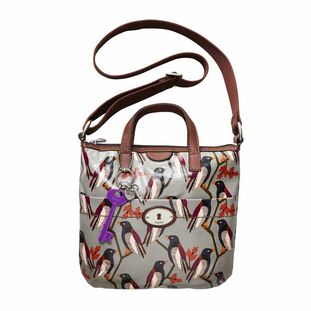 It started with a bird purse. While shopping in Macy's I saw a cute purse on the clearance table that had a pattern of birds on branches. I loved it, and even though I usually had solid black purses, I bought it. I got tons of compliments on it and always enjoyed carrying it, so when it wore out, I had a great idea: I'd buy another just like it. Unfortunately, I discovered that the maker, Fossil, had not only discontinued the purse, it had stopped making the whole line of coated canvas handbags. So I headed to eBay. No bird purse! But when I searched, I found a great assortment of purses, many "new with tags," that were made by the same company in a variety of patterns. So I bought a sixties mod-looking bag with white flowers and pink dots on a black background. This bag was a bit roomier than the last one, so I liked the size even better. Flash forward to when that bag wore out: I scouted eBay for another. I bought a pink one with a pattern like fireworks, and then, because I was about to take a trip and wanted one that would go better with the clothes I was packing, passed it over for a black purse with a design that reminded me of a Spirograph. Now that purse is wearing out, and I've bought another style, in navy with dots--which means I have two new purses to choose from. I might say I'm saving time--I've found a purse I like, and I don't have to deal with going from store to store, trying to find a new purse that suits me. I just look on EBay and order one. But am I getting in a rut?
I wrote before about my little whiteboard of story ideas--a place where I jot down story kernels for future use. The thing is, they are just kernels. For example, I have an item called "Zombie Monarchs" which refers to an article I read about how some of the monarch butterflies in the local butterfly refuge had had their bodies partially eaten by a predator, but were still flying around. One day I decided to start a story inspired by the zombie monarchs. My first thought was that I would write about a couple whose relationship was in trouble. But then I thought: don't I always write that story? Am I getting in a rut? At that time, I had recently published a few stories that had troubled relationships at their hearts: "It'll Do Motel," "I Used To," and "Lifeboat Drill." In my writing, I didn't want to be metaphorically buying the same purse over and over in a different pattern. I tried other scenarios, but nothing clicked. So zombie monarchs remains on my whiteboard, for now. Except for the story from the point of view of bees, my next published stories were all about parent/child relationships of widely differing sorts (including the hypothetical). I'm not worried about a rut right now. But I don't want to let down my guard. Repeating in fashion can be coolly "retro" but in writing repeating is just boring. I don’t like singing Bach. I’m in the minority, I know, but he seems to have only two modes: fugues with endless runs, or chorales. This year, my chorus sang Bach’s Christmas Oratorio Parts 5 and 6, and I grumbled about it. However, one fugue I truly did enjoy—it contains a dramatic moment on the line (English translation, which we sang): “Let not our faith and courage fail us.” Though the lyric is about trusting God ("Lord, when our haughty foes assail us/ let not our faith and courage fail us/ but with thy might and help be near") I find myself thinking about faith and courage in many contexts. To me, this lyric reminds me that we need to have the courage to do the work at hand and have faith that we will eventually see a good outcome. In activism, we need to have faith and courage to keep fighting for the environment, for healthcare, and for justice and equality for all. Setbacks occur, but that doesn’t mean we should give up. We need to have faith and courage in our personal relationships, to speak what we feel, making ourselves vulnerable to others so that we can be closer. In writing, I remind myself I need to have faith in my writing abilities and have the courage to keep submitting my work, even in the face of rejection. The voice in my head that says I’m not a good enough writer is a foe belittling my efforts. I need to keep faith in myself. I’ve been having trouble with that voice in my head lately. My faith in my abilities has been wavering, and my courage to keep submitting (especially the novel) has faltered. I haven’t submitted my novel to very many agents yet, but most agents don’t even respond with a no, which is disheartening. I haven’t been writing much either. However, recently I had a great tonic for my malaise: my annual writers’ group Christmas party. For many years we have had the tradition of getting each other gifts based on our writing. This year, in addition to receiving some interesting books which I’m looking forward to reading (including one from Mark Coggins), my writer friends gave me some gifts representing work I have written this year, reminding me that I have been producing new work. Referencing my story “Aces” which involves a poker game with high stakes for its participants, John Billheimer gave me a deck of marked cards. The marks are very subtle. If you play poker with me, you might want to bring your own deck 😊: Referencing my story “Roadside Shrines,” set at a highway shrine in Argentina where people leave offerings of bottle water, Anne Cheilek gave me these amazing earrings: Referencing my story “Stealing the Unicorn,” Sheila Scobba Banning gave me a giant inflatable unicorn and portable unicorn in purse: None of these stories are published yet, though I’ve started submitting a couple of them. Even though I haven’t had the most productive year, my friends reminded me that I haven’t totally lost faith and courage.
Much is out of our hands. I can’t control whether my writing gets published and finds and audience. All I can do is keep working with as much faith and courage as I can muster. And be grateful that I have good companions in the struggle. In my early 20s I had a vision of myself: wearing a suit, living in a tasteful apartment. Finally a grownup. I drove a four-door sedan. I owned a lot of pencil skirts and low-heeled pumps. I bought neutral-colored furniture. To my mind, that is how serious grown-up people acted. In my post-college apartments, my furniture included:
Sophisticated, I thought. Basic pieces I would never tire of and whose colors would never date. However, I never really loved most of it. I like bright colors. Neutrals bore or irritate me. This furniture wasn’t me—it was what I thought I should like. When I got married, I ditched half of my furniture, favoring my husband’s bolder, better-made pieces. We chose more furniture together. But a few of my original pieces are still hanging around, 20+ years later. Like the coffee table, end tables and wine rack. And the chairs from the dining set (the table is long gone). When we moved recently, the new house was done up entirely in beige, gray, and brown. To counteract that, we bought a colorful Mexican tile table. Wanting bright chairs to match, I ordered some with brown seats and, after watching a few Youtube videos, I recovered the seats in yellow-orange. Turns out, it was pretty easy. I then looked around and saw that we had TEN MORE chairs I could recover. I could change them into anything I wanted. I’ve learned that it’s better to get something I love instead of something I think is tasteful. I know now I’m likely to keep loving it—maybe that’s the confidence of no longer being 23. Or maybe it's the confidence of years of writing, knowing that good work is bold, not timid. For the next chair coverings, I wanted something bright and fun to go in my beige office and bedroom. Something even a little wild. So now I have chairs with parrots on them. Who cares if they aren’t what a serious grown up should have? It turns out that I never really became one. Before and after. Which would you rather have?
As I blogged recently, I took up the ukulele several months ago, and I love it. Playing the ukulele forces me to be in the moment, thinking of nothing but the music. I strum and sing “Take Me Home, Country Roads” and my concerns are quieted by twin forces of concentration and nostalgia for a childhood time when my biggest worry was running into Bigfoot while camping.
However, I think the most pleasurable part of playing the ukulele is that I don’t expect myself to be good. Which is a lucky, because I’m not. I’ve made progress since I last blogged about the ukulele. I can credibly play many songs containing a variety of chords (though E minor is still problematic, to be honest). With my ukulele group, I’ve played at the farmer’s market, the area ukulele fest, and a church group luncheon. I happily strum all the chords I’m capable of, letting the better players carry me. I put zero pressure on myself to excel. In so many aspects of my life, I have high expectations for myself. I expect to be good at my job. I expect to write well and am frustrated when I fall short. I also expect to master the music for the singing groups I’m in and am mortified if I sing a wrong note. Like most of us, I pressure myself to excel. With the ukulele, it’s a relief to expect so little. I’ll fat finger the strings. I’ll play an A chord instead of an F. Who cares? I’m having fun. Which makes me wonder: how much happier would my life be if I could have lower expectations of myself? If I could live just to have fun? What if life were like playing the ukulele? But I can’t imagine it. Just as I can't imagine it when I try to imagine myself not writing, not going through the wringer of writing, submitting, and handling rejection. I am the way I am. And if I could stop having high expectations, would I want to be that person? I know that working towards a high level of achievement is its own, different kind of happiness. It’s the reward of discipline and concentration, of sustained effort and dwelling on your mistakes so that you can correct them. In the end, don’t we all want to do well? To take pride that we have accomplished our tasks as well as we possibly could? A change is coming to my ukulele expectations. I’ve committed to play at an upcoming performance of my singing trio (VERY easy songs). I’ve hesitantly agreed to play with other strummers when my church has a service at the beach next month (song difficulty unknown). I’ll need to practice. I’ll expect myself to be good. Still, I’ll try not to get too serious about the uke. To never expect more of yourself is to never grow up, but to always have high expectations is to forget the joy of childhood. My mother has wild blackberries along her rural driveway. They grow in tangles, threading their way through other plants, seeking sun under the fir spires. While visiting, I ate a blackberry pie my mom baked, which was incredible—the berries, though tart, had a heady perfume and a concentrated blackberry flavor. I decided to pick some berries so Mom could freeze them and make a pie for a future visitor. One morning I borrowed boots and a long-sleeved work shirt from my mother and headed out, carrying her "berry bucket," a souvenir from an Olympia Brewing tour our family took decades ago. I told her not to expect too much. The berries are tiny--the biggest no larger than my pinky fingertip. I told her to expect about two tablespoons. I was pessimistic, not only because of the berries’ small size, but also because I hadn’t seen many ripe ones on the driveway earlier. “Look for the red ones,” Mom said. “Lift some leaves and you’ll find some ripe ones.” When I got to her favorite berry patch, at first I saw only a few berries. I hunkered down to pick them and as I lifted the leaves away more ripe berries appeared, their deep purple hidden by leaf shadows. I picked, stooped or hunched, stepping into uneven ground with booted feet, working my way down the gravel driveway. After a half hour of picking, I had picked over a cup of berries. Lately I’ve been down about my writing. I’ve started sending my novel out to a few agents. So far, no one has leaped to represent me. I know intellectually that it’s a numbers game. I’ve only sent it to a handful of agents, while my friends tell stories of querying 50 or 100 agents before signing. I need to keep trying—only by sustained work will I see results. If I just work at it a little at a time, eventually my queries will add up. I can’t control the outcome, but I can control my effort, and I need to keep going. Keep picking, even if the berries aren’t easy to spot, even if the blackberry thorns prick and the mosquitoes bite.
When I returned to the house, I froze the berries after culling out the grass seeds. My mother will pick more berries, and eventually bake another pie when she has gathered enough. Wild blackberries are work, she says, but they taste so much better than the domesticated ones. My church periodically provides meals at the local homeless shelter, and recently I volunteered to help. The coordinator sent the cooks a casserole recipe which had condensed cream of mushroom soup, egg noodles, diced chicken, frozen peas, and a topping of crushed Ritz Crackers. “How retro!” I said. I don’t usually cook this way. I’m more likely to make a soup from dried beans and fresh vegetables. This casserole didn’t even use chopped onions and garlic, instead substituting onion and garlic powder. Of course, I realized why the leader chose this recipe. It’s easy, so that someone with rudimentary cooking skills or limited time can make it. It’s not spicy, so the children at the shelter will eat it (and yes, children live at this shelter, where there’s play equipment and transportation to local schools). But I balked a little at cooking something for the homeless that I wouldn’t cook for myself. As I boiled egg noodles and opened soup cans, though, the recipe started looking familiar. It was like a tuna noodle casserole with chicken instead of tuna. When I was growing up, I ate a lot of tuna casserole. My parents had six children, so every night my mother had to cook for eight people. Eight people! When I make a pot of soup, I freeze three quarters of it, providing multiple easy meals for the future. My mother prepared a mind-boggling amount of food; she and Dad bought two carts full at the grocery store every week; plus, many days she walked to the store to supplement the weekly shopping. If I had to cook that much, I’d make anything that didn’t take all day and that my kids would eat. After assembling the casserole, I swiped a fingerful of sauce from the mixing bowl. Pretty tasty. And as it baked the familiar smell permeated the house—a comfort smell. A smell of home. Recently, I noticed that the tip of my left index finger wasn’t as sensitive as usual. At first, I wondered if I had burned it on the oven (I manage to burn myself whenever I bake). It took a few days for me to realize that I was developing a callus from playing the ukulele.
I’ve been playing the ukulele a lot. For those who read my earlier post on the ukulele, you’ll be glad to know I can now play songs with more than four chords. For about six weeks, I decided to subtract one occupation and add another—I gave up playing games on my phone and pledged to play the ukulele every day. Shockingly, I only got a smart phone last fall. After I’d had it a couple of months, I found a solitaire app and also downloaded the Candy Crush game that I’d seen my friends playing. Soon, though, I found myself playing these games often. Candy Crush especially mesmerized me with all its bright colors and movement. If my phone was handy (say, on my bedside table) I’d find myself thinking “just one game” and playing for half an hour or more. I was surprised, after I quit, how often I craved a quick game. Physically, my arms hurt from holding the phone out in front of me and tapping. But I discovered that the mental effects were worse. Because Candy Crush suggests moves, I could sit there tapping mindlessly, watching candies explode and getting rewards for playing often. I’d stop interacting with the world around me and only see the phone. Meanwhile, I wasn’t learning facts or experiencing emotion and empathy, as I would be watching a movie or reading. Even working a crossword would have kept my mind more engaged. By playing those games, I was developing calluses of the mind—deadening sensation and my interaction with the world. Instead of people-watching while I waited at the DMV, I watched the bright lights on my phone. But that meant that I wasn’t observing the world around me. Henry James said to writers: "Try to be one of the people on whom nothing is lost!" I wasn’t being one of those people. Maybe I would have noticed some DMV detail that would have sparked my imagination, the way seeing an out of service bus flashing the word Sorry became the start of my story “My Route.” Playing the ukulele, on the other hand, has made my mind work in ways it hasn’t had to work previously. It’s teaching my fingers muscle memory for chords. It’s given me the opportunity to meet other players at my local ukulele group. The ukulele is stretching me to develop in new ways. Now, mindlessness has its uses. Sometimes it’s a relief to sink into an activity that can distract me from nervousness or worry. Will I go back to playing the games? Maybe. But I hope I spend more time on more engaging activities that feed the heart and soul, instead of activities that act as a barrier between me and the world. After thinking vaguely for years that I’d like to play the ukulele, this year I actually started, signing up for Ukulele Boot Camp. By the end, I could play “Melt with You,” which only has two chords. The class played other songs, but I couldn’t manage three chords. That’s right—I couldn’t even keep up with “The Pina Colada Song.”
Even though I’m clearly not a natural, I’ve kept at it. I’ve never played a stringed instrument and haven’t played any instrument since I gave up the trombone in high school. Even though the ukulele is an easy instrument, it’s hard for me. I cannot strum a pattern and sing and change chords concurrently. At most, I can do two out of three, and even then my chord changes come with long pauses while I reset my fingers. E minor takes me so long I often skip it. I can’t play a regular E chord at all—I’ve tried a few fingerings and cannot contort my hand to the correct position. For me, playing the ukulele is an exercise in humility. I have no cause for pride or arrogance when I play. And yet, I’m learning constantly. “Let It Be” is now my favorite song. It has four simple chords and I can play it credibly, but I also enjoy fumbling through Carole King’s “So Far Away,” which has a chord called Gbm7, which seems like the name of an obscure vitamin and has a fingering so awkward I have yet to execute it. Church has also given me a recent dose of humility. After years as a Christmas and Easter churchgoer, I’ve started going regularly again. The last time I did any Bible study was during junior high Confirmation, which I viewed as something to endure. While in a study session recently, I asked for a definition of “justification,” a term so central to my church’s theology that, after explaining, the pastor gently suggested I might want to review basic church teachings. I am now surrounded by people who have for years sought religious enlightenment and a more just world, while I am a novice. I’m grateful and humbled. However, approaching a task with humility gives the greatest opportunity for discovery. I am learning a lot from my fellow ukulele players and church colleagues, just as I became a better singer by joining a chorus whose members were better musicians than me. Humility is good because it opens you up to listening to others. It makes you recognize that you don’t have the answers. Humility is underrated. Pride, humility’s opposite, is overrated, especially in our culture. I’ve squandered opportunities because I thought that I already knew what someone was trying to teach me, or that I was too advanced to need instruction. I once attended a writing lecture by a famous author (I’m too embarrassed to give you her name). Her opening remarks seemed absurdly elementary to me. Later, when a classmate discussed the lecture, I realized I didn’t remember any of the information my classmate had gleaned. Thinking I was too advanced for the lesson, I didn’t listen closely, and so missed a learning opportunity. For a writer, pride is useless. Every time I sit down to write and think “I know how to write this story,” the story feels lifeless, if I even finish it. My best work has occurred when I felt overwhelmed and panicked because I had no idea how to accomplish what I set out to write. It’s humiliating to have been publishing stories and essays for 15 years and still be thinking “I’m not sure I can do this.” But humility means I’m open and learning, alive to the possibilities of creating something better than I’ve ever written before. I live on a former almond orchard, and when the developers built the house, they left a few of the old almond trees lining the driveway. Most don't produce much, but the one nearest the house usually has a good crop. So when fall rolls around, I find myself gathering almonds most days. Some days I find only a handful. On windy days I find more. Almonds grow with a husk around them, and when they are ripe the husk splits, making the almond easy to get to. Often the almonds just pop out of the husks when they fall, so I have to keep my eyes open for nuts in and out of the husks. Also, I try to avoid empty husks, or I bend down a lot for nothing. The husks have a furry texture, like peach fuzz, and usually I can peel the husk from the almond shell easily. Since I've been collecting almonds, a few things have struck me:
I have to look daily, not knowing if I'll get a lot or a few. If I wait, deer or birds will eat the almonds. Also, since my tree is over the driveway, if I don't pick up the nuts, I'll drive over them and crush them. Sometimes I'll waste my time. I've developed the habit of stepping lightly on husks to feel if they have a nut in them before bending down, and I still get fooled. Also, I'll see a nut that looks whole, turn it over and find that some critter has eaten the nut and left just the shell. There's always more almonds than I first see. Almonds are well-camouflaged to blend in with the ground. We have bark under part of the tree, and almonds look an awful lot like wood chips too. I usually move over the ground, then retrace my steps. I always find almonds on my trip back that I overlooked the first time. In fact, I always find more almonds even when I'm rechecking the driveway, where they don't blend in at all. I simply miss them, mistaking them for empty husks or not even seeing them. My almond hunting technique is a metaphor for pursuing any creative endeavor: painting, knitting, cake decorating, photographing, or in my case, writing. You have to work at it daily (or close to daily) if you want to accomplish a lot. You have to keep at it, or your ideas will vanish before you can use them. You have to be willing to waste your time, or you wont risk anything in your work. Sometimes your brilliant idea will be not so brilliant. Sometimes I come back to yesterday's writing and realize I have to cut a whole day's work. Knitters I know sometimes have to unravel. Photographers find their shots less inspired than they'd hoped. Finally, I like the notion that if you keep looking, you'll find more material, just as there are more almonds than first visible. Ideas for creative work are all around; you just have to look. I think a lot of writers have only a few great subjects they explore. For example, Jane Austen often wrote about the foibles and trials of the English gentry. going over that ground again and again, always finding more ideas to shed light on her main subject. According to Wikipedia, Monet painted over 250 pictures of water lilies, spending much of the last 30 years of his life on them. Going to the same part of his garden over and over, he found inspiration. It's work to gather and prepare almonds. But when you peel off the husks, crack the shells, and eat the fresh nut inside, it's so worth it. |
Author
Ann Hillesland writes fiction and essays. Her work has appeared in many literary journals, including Fourth Genre, Bayou, The Laurel Review, and Sou’wester. Categories
All
Archives
February 2024
© Ann Hillesland 2015-2017. Unauthorized use and/or duplication of this material without express and written permission from this site’s author is strictly prohibited. Excerpts and links may be used, provided that full and clear credit is given to Ann Hillesland with specific direction to the original content.
|
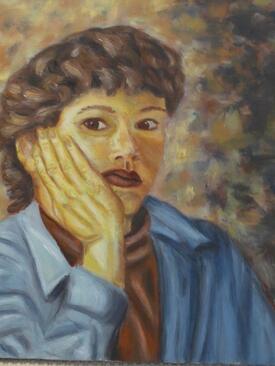

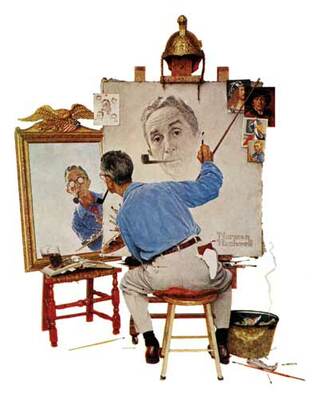
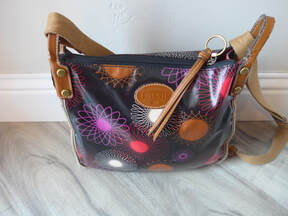
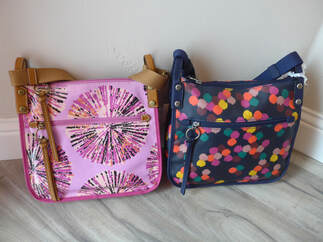
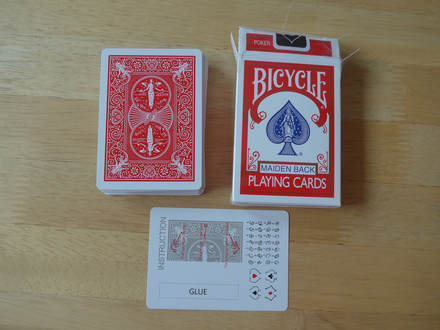
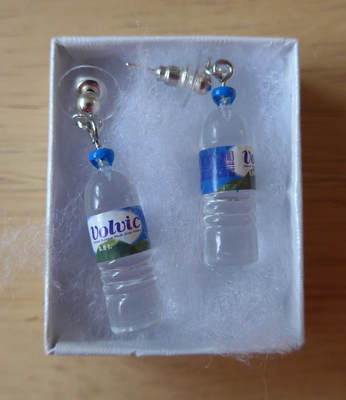
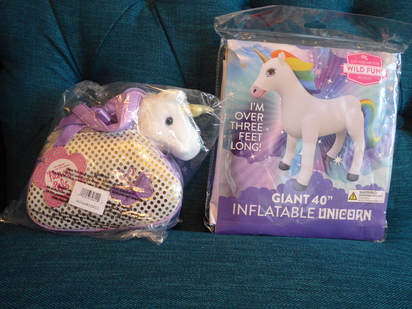
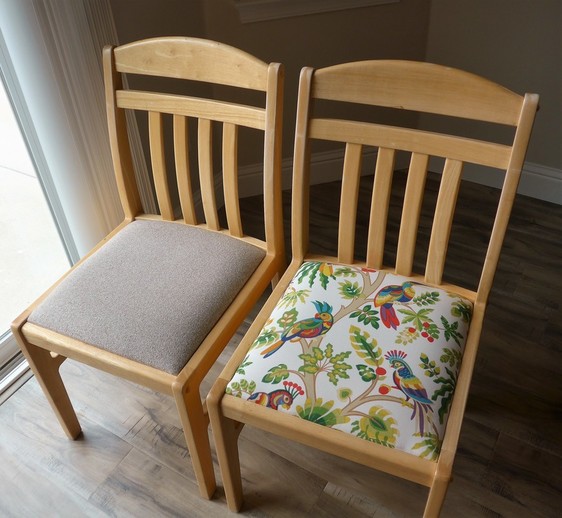
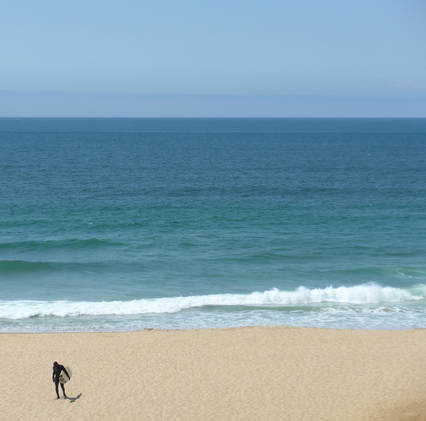
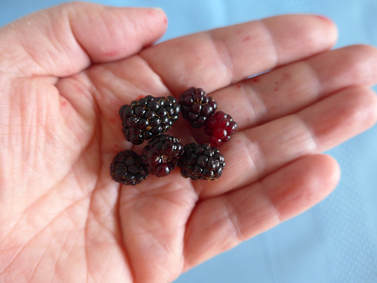
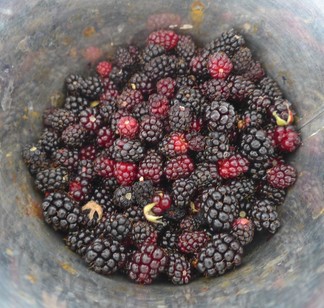
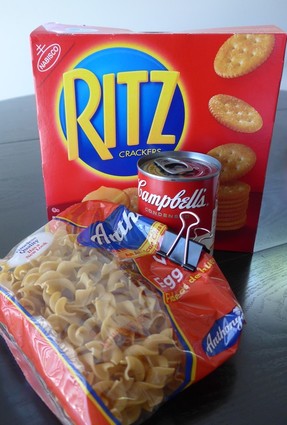
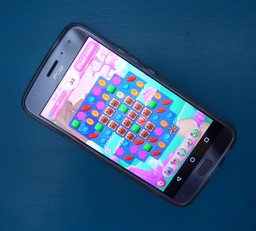
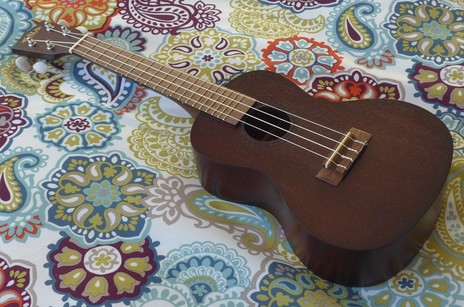
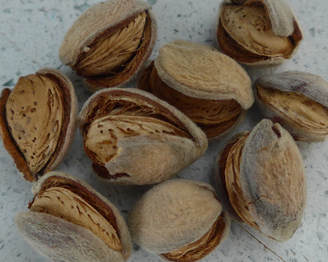
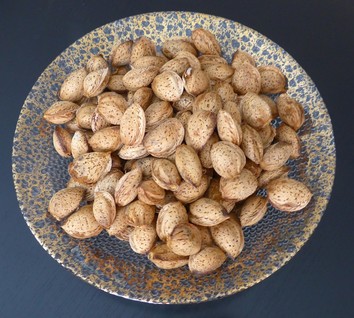
 RSS Feed
RSS Feed